Artificial Intelligence (AI) is increasingly being integrated into estate planning research and processes. Individuals and professionals may be tempted to utilize AI’s power for various legal purposes. This includes creating legal documents such as wills, evaluating risk, assisting with estate management, valuing assets, and planning taxes.
AI is already revolutionizing estate planning by providing individuals and families with powerful tools and insights to make informed decisions, protect their assets, and preserve their legacies for future generations.
But is it safe to use AI when creating estate planning documents?
The American College of Trust and Estate Counsel (ACTEC) is a professional organization composed of lawyers who are recognized leaders in the field of trust and estate law. ACTEC’s Fellows have been researching, testing and discussing the positive and negative effects of using AI and share their insights and warnings through a series of educational videos and podcasts. The ACTEC Estate Planning Essentials video series shares information for individuals and families. The ACTEC Trust and Estate Talk podcast series explores topics of interest to lawyers and wealth planning professionals.
Find a Skilled Wills and Trusts Attorney
ACTEC Fellows are exceptional trust and estate lawyers practicing in the U.S. and around the world. Search for an attorney in your area.
FIND AN ACTEC LAWYERACTEC Estate Planning Essentials
In the ACTEC Estate Planning Essentials videos, experts answer common questions about estate planning and discuss what the general public needs to understand about using AI programs like ChatGPT and OpenAI for research and estate planning document preparation. Don’t leave the distribution of your assets to chance—gain the knowledge you need to make informed decisions.
Artificial Intelligence (AI) and Planning Your Estate
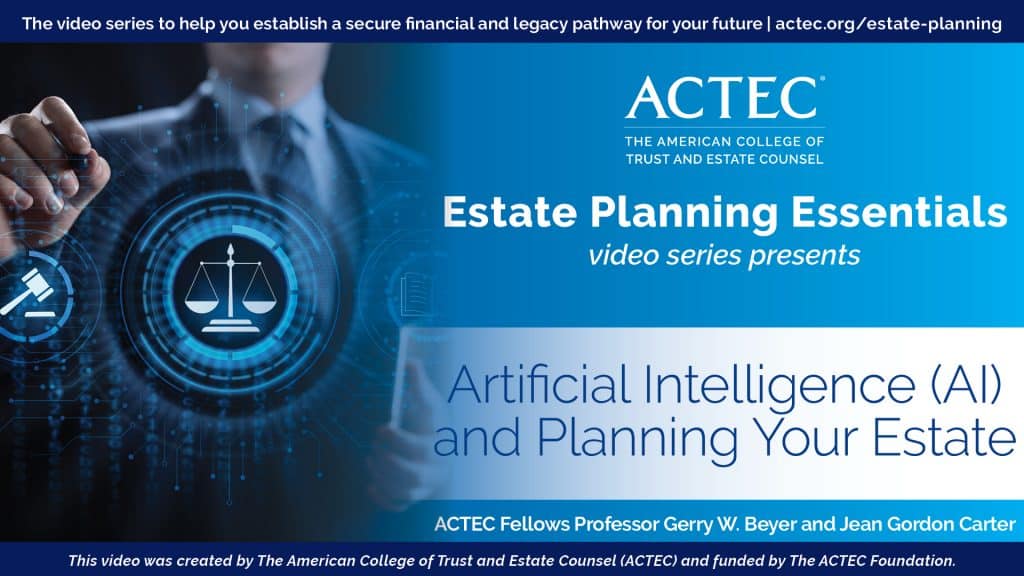
Estate planning attorneys discuss why consumers should be cautious when using AI to draft estate planning documents, and the responsibilities trust and estate lawyers have when using this technology.
Use of Artificial Intelligence (AI) in Creating an Estate Plan
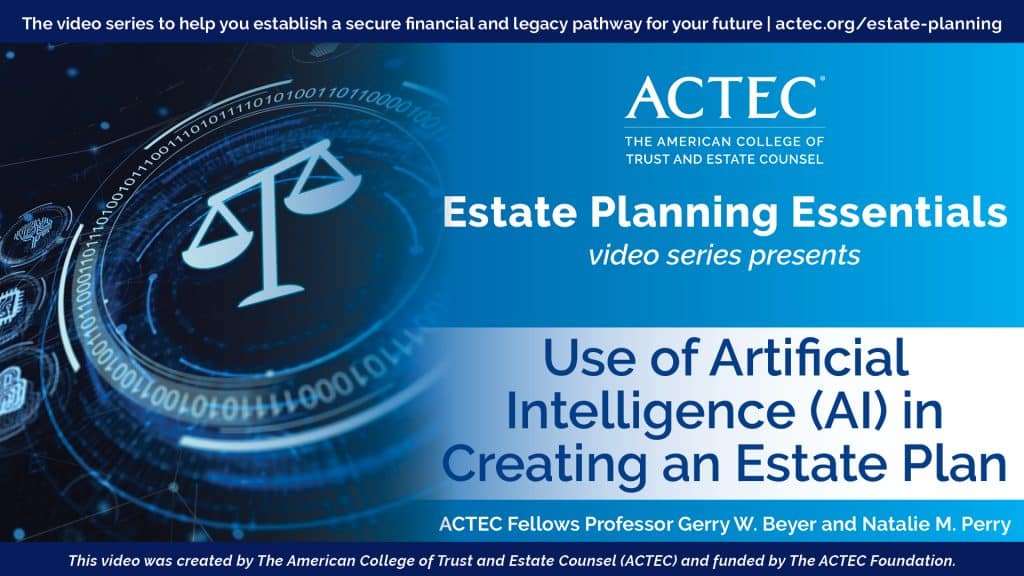
Discover the pros and cons of using AI in estate planning, learn how to use AI safely, and why expert legal advice is crucial.
ACTEC Trust and Estate Talk
The ACTEC Trust and Estate Talk podcasts take a deep dive into the use of AI in estate planning and what attorneys, financial advisors, fiduciaries, and anyone interested in estate planning and wealth preservation need to consider when using AI.
AI and Trust and Estate Law: The Future Is Here to Stay
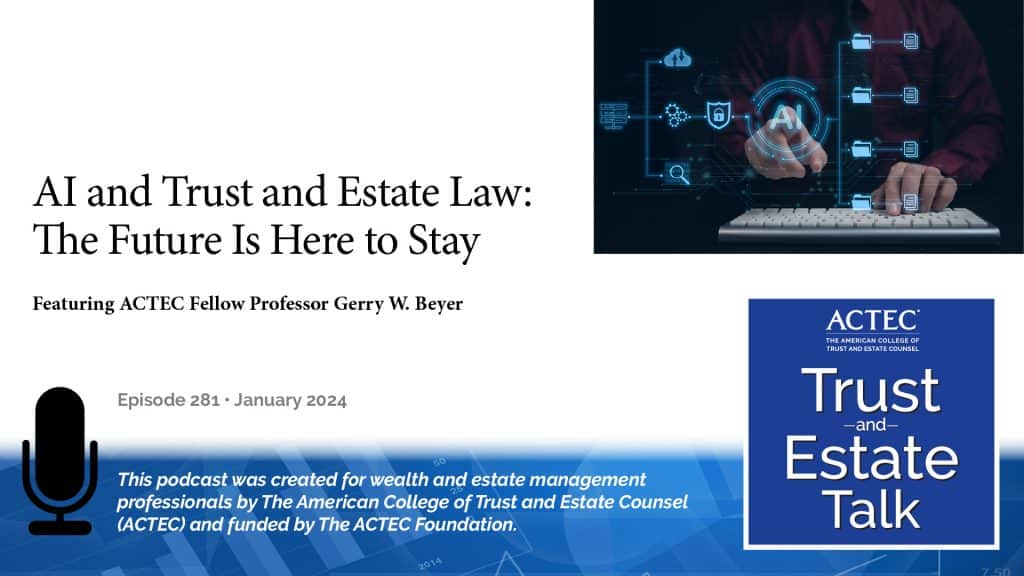
A law professor explores the transformative impact of AI in trust and estate law, delving into ethics, challenges, tips for professionals, and future trends shaping legal practices.
What Is Artificial Intelligence and the Impact on T&E Law in 2024 and Beyond?
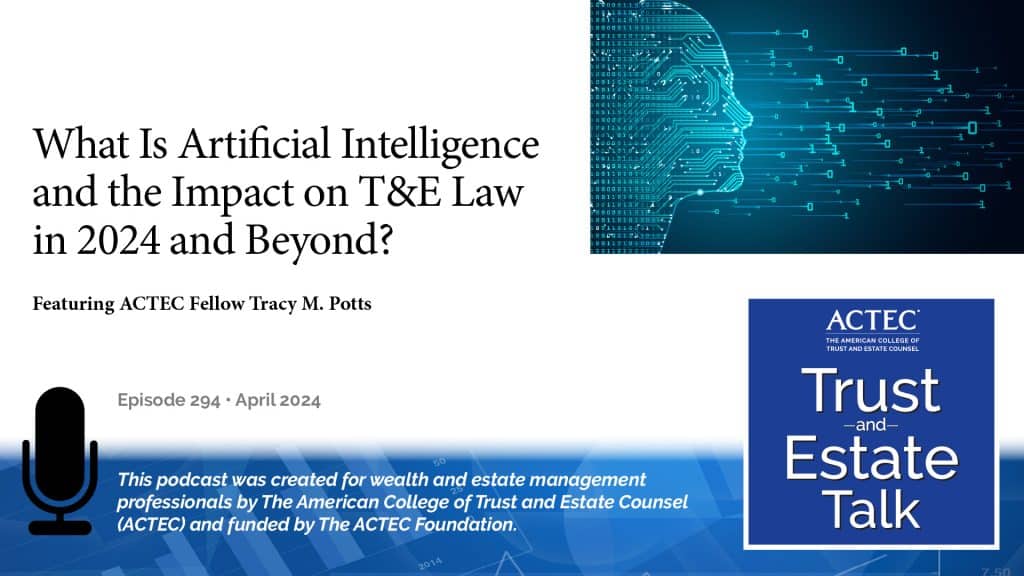
An estate planning attorney introduces different types and uses of AI, and takes a close look at AI’s impact on trust and estate law, including different forms, applications, and ethical concerns.
The Ethical Use of Artificial Intelligence in Trust & Estate Law
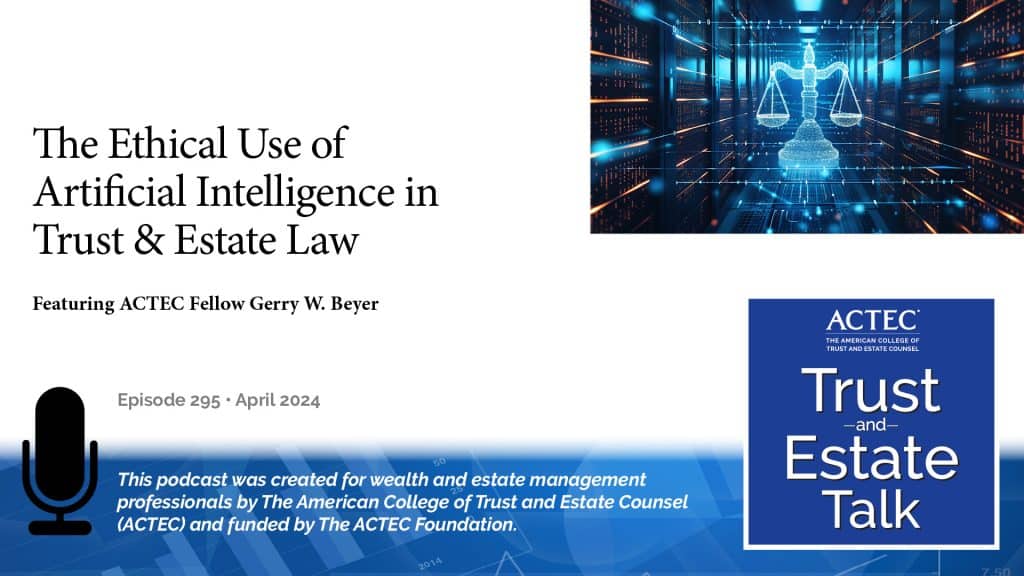
A law professor discusses how lawyers can benefit from using AI in their trust and estate law practices. He also outlines the challenges and ethical considerations that come with using AI in this field.
AI-Related Practice Management Considerations for Law Firms
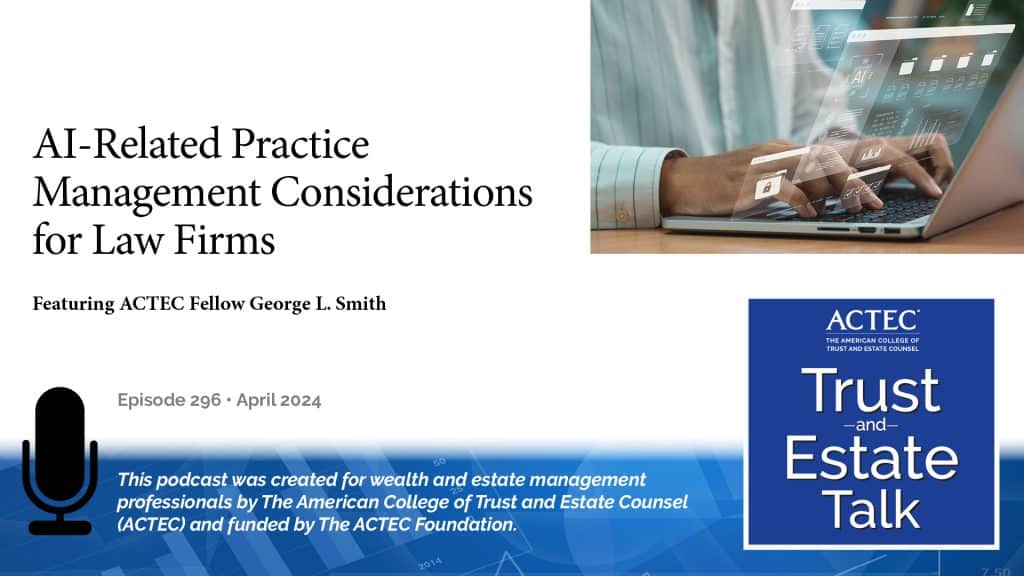
An estate planning attorney discusses how law firms can incorporate AI into their practice management and what to consider, such as staffing impacts and updating the employee handbook. He also examines the effect of AI on the “billable hour” and other related topics.
Government Regulation of Artificial Intelligence
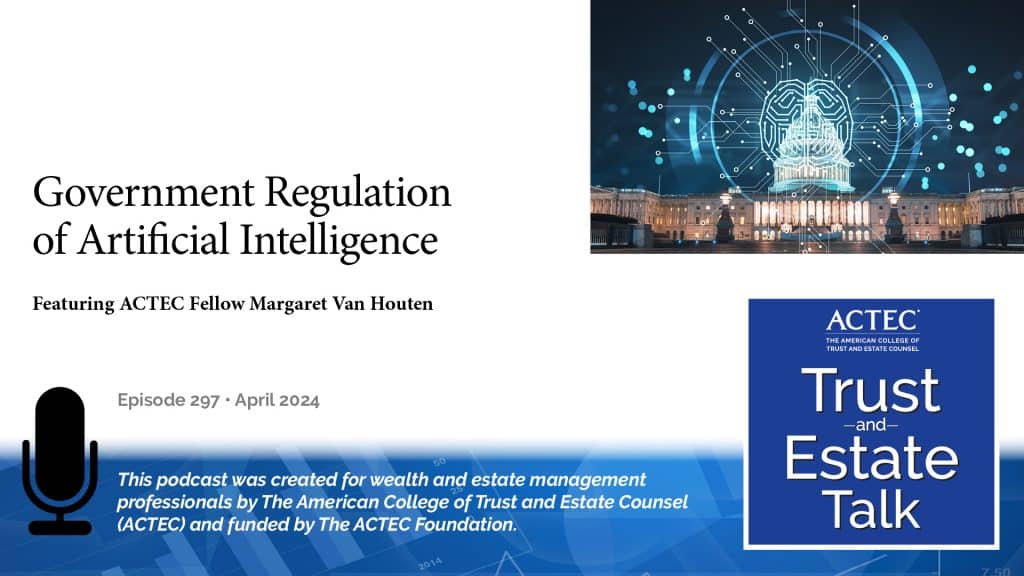
The rapid growth of AI demands government regulation to safeguard against the misuse of private data. U.S. policies and global efforts are underway to address this critical issue. Learn about them in this podcast.
